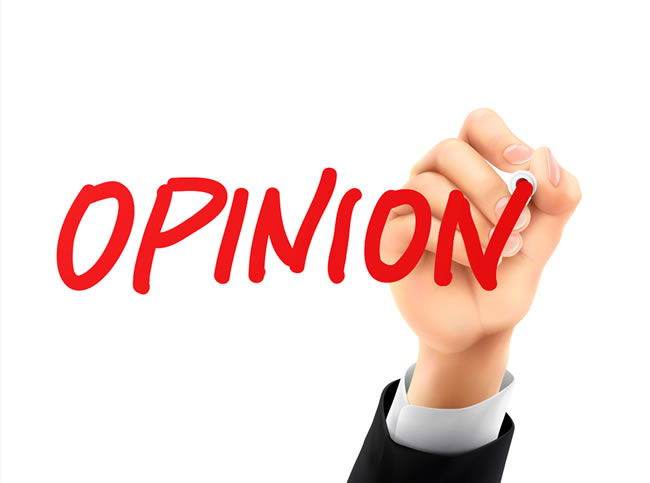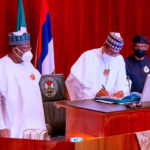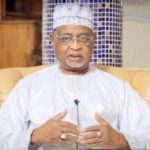As a citizen of Nigeria and one who closely monitors developments in the power sector, I am constrained to add my voice to the news trending penultimate week on – “Why we take over electricity equipment bought by consumers — DisCos” reported by your platform. In a statement issued in Abuja recently by the Association of Nigerian Electricity Distributors (ANED’s) Executive Director for Research and Advocacy, Sunday Oduntan, he said distribution companies (DisCos) normally assumed ownership of “donated” equipment because of “indemnity and protection“. What is “indemnity” and “protection”? According to Adam Hayes, “Indemnity is a contractual agreement between two parties. In this arrangement, one party agrees to pay for potential losses or damages caused by another party. A typical example is an insurance contract, in which the insurer or the indemnitor agrees to compensate the other (the insured or the indemnitee) for any damages or losses in return for premiums paid by the insured to the insurer… Indemnity may be paid in the form of cash, or by way of repairs or replacement, depending on the terms of the indemnity agreement. However, a company (or individual) may obtain protection from indemnity claims. This insurance protects the holder from having to pay the full sum of an indemnity, even if the holder is responsible for the cause of the indemnity.”
This was the message ANED subtly sent to Nigerians. The reality was that; at no time was there any agreement signed by “donors” and DisCos? ANED is disingenuously relying on an old rule applicable to the defunct National Electric Power Authority (NEPA) and Power Holding Company of Nigeria (PHCN) to run a private business. The rule cannot apply in both instances. The Holy Book says that “my people perish because they lack knowledge.” It is this obvious public ignorance of the power sector that permits service providers represented by ANED to market falsehood and ride roughshod on our collective backs. The same ignorance gives room to unchallenged poor service delivery, flagrant abuse or neglect of extant laws. Power sector is one “occultic” area where information concerning its operations are deliberately hidden from the public glare and scrutiny. The majority of Nigerian electricity consumers/customers are not even familiar with the laws, policy guidelines and rules governing the industry. It may interest you to know that 99 per cent of consumers/customers have little or no understanding of the content of their bills talk more of system operations. Consumers/customers are rather consumed by the anger in exorbitant billing than asking fundamental questions like, is it justifiable to bill me such amount monthly?
The service providers, aware of the docility and weakness of Nigerians, continue with their impunity. Therefore, ANED can as much as possible capitalise on the ignorance of Nigerians to blow its trumpet and hoodwink the general public to buy its own narratives. Why capitalise on assuming ownership of equipment than responsibly providing one? Nobody seems to ask questions about constant power failure, quality service delivery, customer satisfaction, endemic corruption and inefficiency in DisCos but ownership of equipment “donated” by customers. For the avoidance of doubt, the new owners of DisCos are businessmen in hot pursuit of cash who do not seem to understand the actual role electricity plays in national development. The ugly state of public power supply and technical bankruptcy of DisCos should be a source of concern to ANED. The association should for once take the lead to educate, inform and enlighten the public on general principles guiding the sector instead of chasing shadows or robbing in their failure on Nigerians.
Let me address some bogus claims made by ANED in the course of promoting its agenda and put in proper perspective what Nigerians already know about the sorry state of the power sector. First, it is erroneous or rather laughable to claim or assume ownership of a property not bought by you in the name of safety or indemnity/protection when it does not apply to you. Agreed that those equipment can only be managed by DisCos to aid power supply business but issuing a statement on ‘ownership’ does not arise. It amounts to covetousness for DisCos to assume ownership of transformers and other accessories bought by federal government, states, politicians, banks, companies, communities and individuals with a simply press statement. Mr Oduntan claimed that it was the responsibility of DisCos to provide electricity infrastructure, adding that they do a lot of this. He went on to say that since privatisation in 2013, ANED members have invested considerably in improvements in their networks. How much investment did ANED members put when it owes over N256bn to market operator? How about the unpaid government intervention fund running also into billions? Money is countable, ANED should have mentioned exactly how much DisCos invested in infrastructure since 2013 when they took over.
Second, another smart move by DisCos is asking customers to write a letter of donation of equipment. With a letter, it will look like a gesture while customers/consumers and communities who so did were psychologically forced to. DisCos will abandon communities with faulty transformers in darkness for months. And the people will have no choice but to take steps to restore supply. And when materials are procured with community fund; the issue of letter of donation comes up. Even by hiding under the cover of a letter, it is fraudulent to do so? Official lies are prevalent in Nigeria and because the consumers/customers do not have a common platform to drive their concerns, the weight of troubles they go through in the hands of DisCos are never noticed or addressed properly and promptly. Third, according to him, it is important for Nigerians to understand that DisCos have a responsibility to ensure that only good quality equipment duly certified by Nigerian Electricity Management and Safety Agency (NEMSA) are installed in their networks. Cases abound where DisCos go to China and produce meters without due consultations with Nigeria Electricity Management Agency (NEMSA). The meters are never calibration or valuated by NEMSA either.
The problem with NEMSA is that the laws establishing it has no teeth. DisCos understood the defects thus regularly scorns the agency. Sometimes, agency officials having been compromised look the other way as safety and standards suffer.
Fourth, after installation, DISCOs have to take steps to protect such equipment so that it will be safe for use by customers. Sagging low tension wires and weak wooden poles are commonly found in our streets. Most substations are never protected by DisCos, communities build walls, wire gauze, and cast concretes on upriser cables to prevent vandalism. Some substations protected at all by DisCos are conduit pipes to line the pockets of some top management staff.
Fifth, we need to protect the equipment and ensure that access is only granted to qualified personnel. People have lost their lives because they were trying to maintain their transformers. Electrocution is a common denominator in the power sector and it never reduced in this new era of ANED. According to NERC report, 126 people were killed in safety related accidents within 18 months while 68 were injured. This is even under reported. Most of lives lost in the course of maintenance are DisCo staff. Communities and individuals do not maintain transformers. They only report faults to DisCos who have maintenance departments but more of than not never attend promptly to faults. It may interest you to know that some communities pay some corrupt DisCo staff before faults are cleared.
Sixth, he said that in situations where the demand exceeded supply due to a shortage of funds, customers do step in to help their communities. At no time in this dispensation were DisCos ready for efficient services.
From the beginning, they lack requisite fund and even technical know how to run a capital intensive power sector. ANED has stated the obvious. In fact, consumers/customers do not step in willingly to help their communities. Why should they in the first place? How many times did communities step in to help telecom providers? DisCos understood the psychology of Nigerians and they have built on that fault line to extort.
DisCos have abdicated some of their responsibilities and still charges high. At what time did DisCos take into consideration the efforts of communities when it comes to billing even with those who stepped in to help rather than waiting? There is no place of community volunteering and nothing like that was expressly stipulated by the Nigerian Electricity Regulatory Commission (NERC).
Seventh, Mr Oduntan described as unfair, accusations surrounding disconnections and reconnection fees charged by service providers. One agrees that there are grounds to disconnect a debtor customer but on what basis of the laws is reconnection fee charged? Disconnection Fees is illegal during NEPA/PHCN and still remains so today. It is another corrupt avenue of fleecing Nigerians. He explained that disconnection was a legitimate recourse available to the service providers under certain conditions and clear guidelines stipulated by NERC but failed to name such conditions regarding payment of reconnection fee as stipulated by law.
Disconnection is carried out monthly not when a customer owes accumulated bills for over 90 days. It is one major lazy cash drive methods of DisCos. That time and resources are expended in disconnecting and reconnecting a customer being the reason for reconnection fee is preposterous. Moreso was that; it was statutory to charge a fee to cover the operations and to deter offenders. Nigerians will only heave a sigh of relief if the Power Sector Reform Act, 2004 is strictly adhered to by all stakeholders.
- Eze, a media and communication specialist, writes in via sunnyeze02@yhaoo.com






